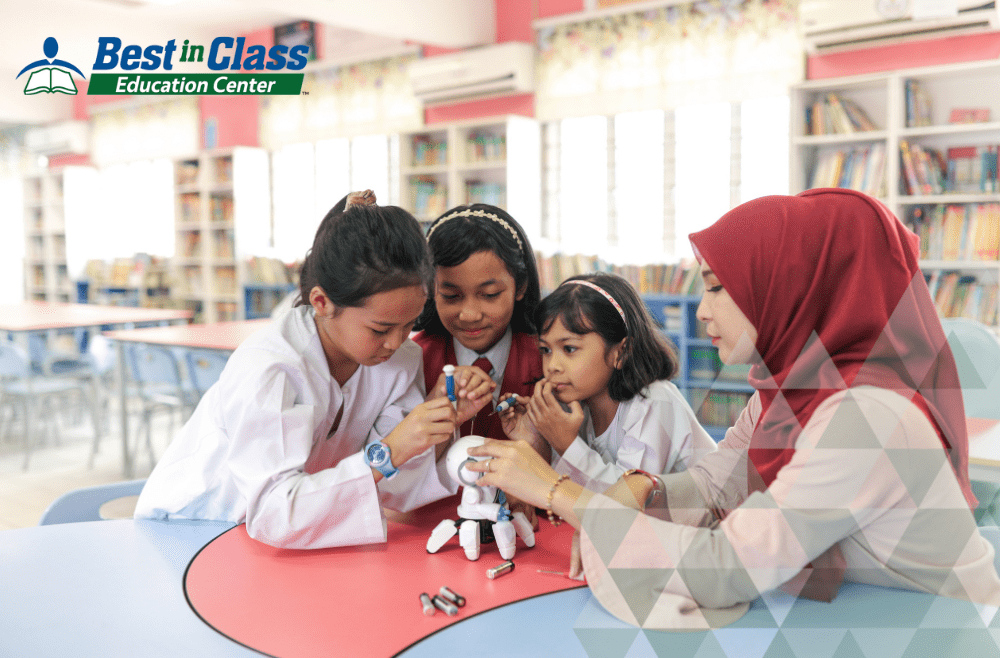The Confidence-Building Benefits of Extracurricular Activities

Self-confidence struggles are a natural part of growing up, and as adults, we can all remember times throughout our school years when we faced similar struggles to our children’s. Common confidence shakers for kids are fitting into peer groups and comparing their achievements to those of their classmates. Then, as they reach middle and high school, confidence challenges can show up as they deal with their body image, dating decisions, and friend circles.
As a parent, you want to equip your child with the tools to confidently pass through the stages from elementary school to early adulthood. Helping your child plug into the right extracurriculars is one way to grow their self-esteem.
Drama, scouts, volleyball, and service clubs—these extracurricular activities are more than fun ways to pass the time after the bell rings. Extracurricular activities have many confidence-building benefits that can keep kids mentally strong as they handle the hurdles of growing up.
Here are five confidence-building benefits of extracurricular activities.
Teamwork
For a child struggling with self-esteem, joining a team can boost their confidence. Extracurricular activities involving teamwork offer opportunities for children to learn how to cooperate with others, cheer for one another, accept praise, and handle disappointment. The skills they will gain as a team member will carry with them for the rest of their lives.
Opportunities to Make Choices
If your child is like most kids, they may wake up early in the morning, go to school, and move through a set daily schedule. Then, they come home, grab a snack, and do their homework. Sure, they get some downtime here and there, but most of their days are determined for them by their parents and teachers.
An area where children can exercise choice-making is in selecting their extracurricular activities. Taking charge of their after-school commitments can boost confidence in a big way! When they have a voice in what they’d like to learn or do, they attain independence and begin forming their sense of identity.
Perhaps the sport or hobby will be something they do for the rest of their life, or they could find out that it’s not the best match. In either case, by letting them decide what’s important to them, they will practice choosing how to spend their time, and that’s powerful!
New Skill Learning
Often, when individuals struggle with confidence, a fixed mindset is at work. Children with a fixed mindset may have internalized the message that they are naturally bad at something, such as sports, math, or reading. To improve their outcomes and can-do attitude, they must develop a growth mindset. People with a growth mindset believe that most of their traits are not fixed or permanent. Instead, they realize that improvement and growth are always achievable.
For example, when a child takes up a new activity, such as running, drawing, or learning an instrument, they can see the effects of their efforts. They realize that the more they practice, the faster their speed, the better their art becomes, or the more complex songs they can play. Once a child understands how efforts over time add up, they begin making the connection to other parts of their lives like relationships and academics. With a growth mindset, children see the sky is the limit for their pursuits!
Socialization
Apart from the teamwork skills we mentioned earlier, there are other social skills that children can gain from joining extracurriculars involving teams. Additional valuable skills include cooperating with teammates, empathizing with others, responding to their coach’s and peers’ feedback, and speaking respectfully to the opposing players after a match. They also gain opportunities to understand the importance of commitment and the cost to the group if a team member doesn’t hold up their end of the deal. These valuable skills will help your child throughout their life and future career.
But the socialization skills gained from a hobby or sport don’t only apply to teams. Nearly any extracurricular activity can provide opportunities to socialize. So, even if your child takes up a solo activity like playing an instrument or running, they can connect with groups of people with the same interest or hobby.
New Role Models
Extracurricular activities provide opportunities for children to find great role models. For example, your child may have a passion for drawing, but no one in your family is a visual creative. An art teacher, however, can inspire them. Or your child wants to be the first family member to attend college, become a lawyer, or achieve another specific goal. Finding new role models can help your child aspire to their dreams.
And even in the most positive and encouraging family, there is no such thing as a child having too many positive role models. A child’s confidence skyrockets when they have many trusted adults in their corner telling them that their interests are valuable and dreams are possible.
Are you looking for more ways to boost your child’s confidence?

